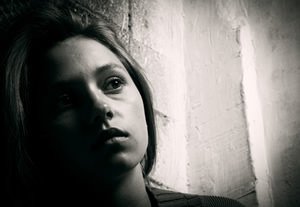FOBIE: SYMPTOMS AND CARE

We are in the presence of a "phobia" when we feel an intense and uncontrollable fear that keeps us away from what triggers it.
These are disproportionate experiences and emotions but that the person lives with real suffering, with anguish and with physical symptoms such as: tachycardia, vertigo, choking, sweating, gastric and intestinal disorders, palpitations, vibrations.
Phobias have a large area of expression. They can in fact concern:
his own Person in his "being" or he can express himself towards "parts of his own body", experienced as negative;
Specific situations, such as open spaces or enclosed spaces, empty spaces, driving, flying, etc .;
some aspects of Nature and the environment, such as darkness, water, heights, thunder etc;
one or more types of animals; such as dogs, cats, spiders, birds, mice, insects etc .;
Objects, such as needles or syringes, which can be experienced as dangerous for oneself (physically or psychically).
What happens, in these cases, is that the person tends to avoid every circumstance and every situation that minimally causes anxiety to avoid the illness.
The person knows that what he feels is excessive and irrational, he knows that his experience does not correspond to a real danger but despite knowing he can not disable the internal alarm process.
With Psychotherapy these symptoms can be addressed in various ways. For example (as practiced by the cognitive-behavioral approach) working directly on what causes anxiety with gradual and structured steps, so as to gradually deactivate the negative experience and reaffirming a new learning. On the other hand (as often happens in the work with a psychodynamic imprint), these symptoms can fade or disappear when they face and dissolve other internal tensions that, resolving themselves, cancel all the symptomatic expressions related to them.